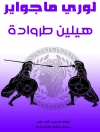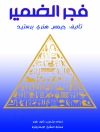This book demonstrates that the carefully chosen Greek words in Persius’ programmatic passages play a significant role in the context of his literary criticism: they allow him to express his objection to the Graecizing poetic compositions of his day more convincingly, while facilitating intertextual dialogues with many writers. Greek words that occur in programmatic passages throw into relief various pathologies of poetry which Persius disapproves of and which contribute effectively to a justification of his rejection. However, this practice, which does not continue into the rest of his work, where Greek words are incorporated into the satirist’s thought more harmoniously, appears to serve specific expediencies and should not be considered characteristic of Persius’ attitude towards Greek culture in general. Besides, the satiric persona adopts a positive stance regarding Greek philosophy or comedy and criticizes the ignorant critics of Greek culture, while many aspects of Greek thought enrich his own poetry in several passages. Thus, despite the intensity with which he turns against the Graecizing compositions of his day, generalizations regarding an anti-Hellenic stance on Persius’ part should be deemed unfounded.
Mengenai Pengarang
Spyridon Tzounakas, University of Cyprus, Nicosia, Cyprus.












